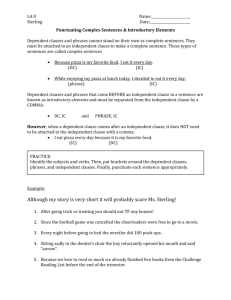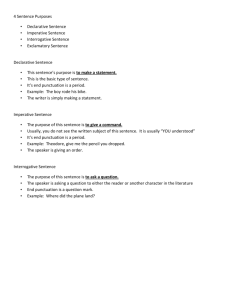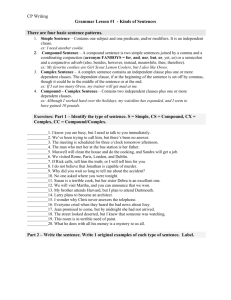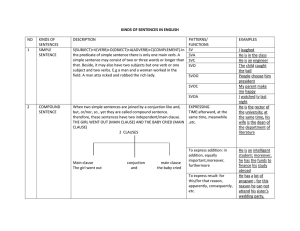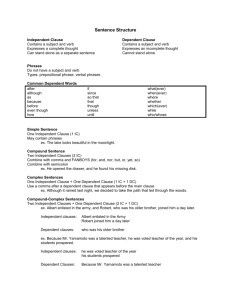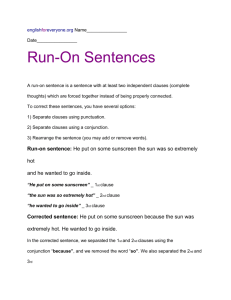Sophisticated Prose: Sentence Structure & Analysis
advertisement
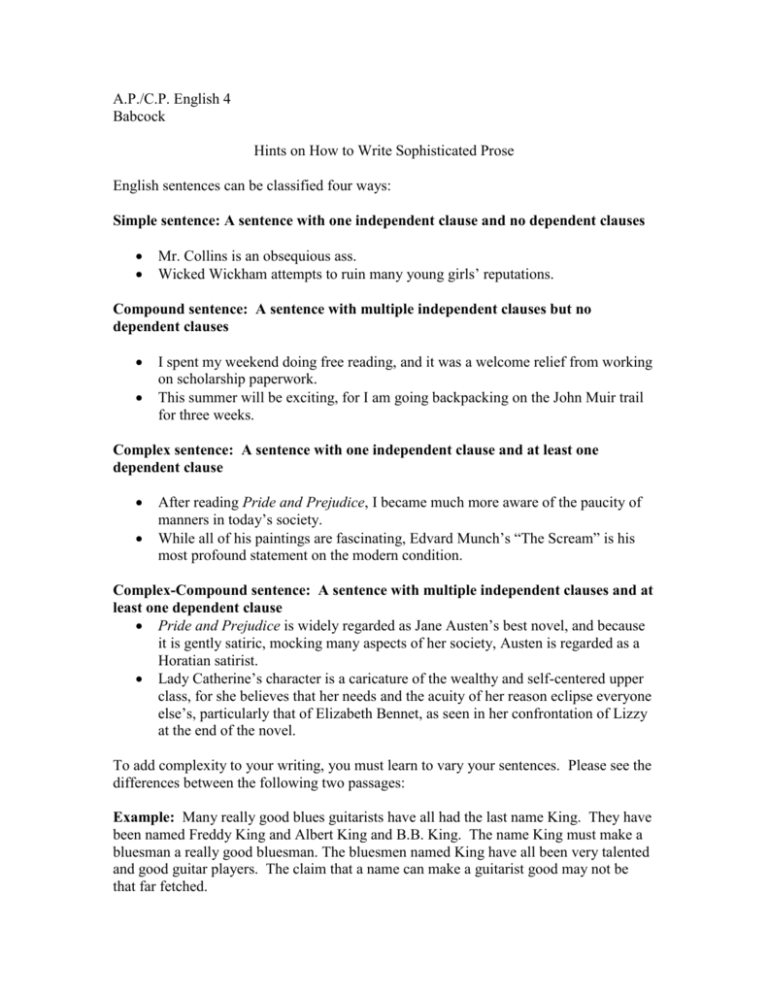
A.P./C.P. English 4 Babcock Hints on How to Write Sophisticated Prose English sentences can be classified four ways: Simple sentence: A sentence with one independent clause and no dependent clauses Mr. Collins is an obsequious ass. Wicked Wickham attempts to ruin many young girls’ reputations. Compound sentence: A sentence with multiple independent clauses but no dependent clauses I spent my weekend doing free reading, and it was a welcome relief from working on scholarship paperwork. This summer will be exciting, for I am going backpacking on the John Muir trail for three weeks. Complex sentence: A sentence with one independent clause and at least one dependent clause After reading Pride and Prejudice, I became much more aware of the paucity of manners in today’s society. While all of his paintings are fascinating, Edvard Munch’s “The Scream” is his most profound statement on the modern condition. Complex-Compound sentence: A sentence with multiple independent clauses and at least one dependent clause Pride and Prejudice is widely regarded as Jane Austen’s best novel, and because it is gently satiric, mocking many aspects of her society, Austen is regarded as a Horatian satirist. Lady Catherine’s character is a caricature of the wealthy and self-centered upper class, for she believes that her needs and the acuity of her reason eclipse everyone else’s, particularly that of Elizabeth Bennet, as seen in her confrontation of Lizzy at the end of the novel. To add complexity to your writing, you must learn to vary your sentences. Please see the differences between the following two passages: Example: Many really good blues guitarists have all had the last name King. They have been named Freddy King and Albert King and B.B. King. The name King must make a bluesman a really good bluesman. The bluesmen named King have all been very talented and good guitar players. The claim that a name can make a guitarist good may not be that far fetched. Revision: What makes a good bluesman? Maybe, just maybe, it is all in a stately name. B.B. king, Freddie King, Albert King—it is no coincidence that they are the royalty of their genre. When their fingers dance like court jesters, their guitars gleam like scepters, and their voices bellow like regal trumpets, they seem almost like nobility. Hearing their music is like walking into the throne room. They really are kings. Exercise: Read the following paragraph from Richard Wrights’ Black Boy and identify which pattern each sentence fits; then explain how the variance in sentence structure makes his writing both more interesting and more powerful. “That night in my rented room, while letting the hot water run over my can of pork and beans in the sink, I opened [H.L. Mencken’s Book of Prefaces] and began to read. I was jarred and shocked by the style, the clear, clean, sweeping sentences. Why did he write like that? And how did one write like that? I pictured the man as a raging demon, slashing with his pen, consumed with hate, denouncing everything American, extolling everything European or German, laughing at the weaknesses of people, mocking God, authority. What was this? I stood up, trying to realize what reality lay behind the meaning of the words. Yes, this man was fighting, fighting with words. He was using words as a weapon, using them as one would use a club. Could words be weapons? Well, yes, for here they were. Then, maybe, perhaps, I could use them as a weapon? No. It frightened me. I read on and what amazed me was not what he said, but how on earth anybody had the courage to say it.”
